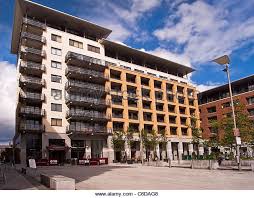Once your relocation is confirmed, you will probably be anxious to find a place to live in Ireland. This can sometimes be a complicated and daunting task when you aren’t familiar with your new area, so you might want to look at finding some short-term accommodation initially while you conduct your long-term housing search on the ground. If you’re relocating to Ireland for work, companies often help with this. Otherwise AirBnBs, hostels, serviced apartments, and hotels are a good place to start.
You have the option of either renting or buying accommodation in Ireland, depending on your length of stay, financial situation, and housing needs. Those with a defined length of stay may prefer to rent, while people planning to remain in Ireland indefinitely might be more likely to buy. The Irish as a culture tend to prefer to buy their homes, but this isn’t always practical or possible and renting is a perfectly acceptable option.
Free signup to our Expat Match …just click ex-patriates.com now !!
The rental process
If you have decided to rent your accommodation while in Ireland, then the best place to start your search is on the internet. Most housing for rent is listed on property search sites where you can set up a search tailored to your requirements that will alert you when a match comes up to let. You may also find it useful to check newspapers, community notice boards, or simply walk around appealing neighbourhoods looking for ‘To Let’ signs. It never hurts to speak to people and see if they know of a place coming onto the rental market in the near future.
Once you are in Ireland, you will probably want to register with at least one estate agent to assist you in your search – with some areas of the country being incredibly competitive for rental properties, the agents will often know what’s coming up for rent before they are listed on the Internet sites. Some agencies require a registration fee up front, however, so find out if this is the case, and if so, double check what you’re getting for your money and whether you’re entitled to a refund if they do not find you a place to live.
Once you find a place of interest, it is advised to view it in person, and do so as soon as you are able. When viewing, take note of things like the state of the windows, appliances, bathroom fixtures. Check for dampness, and that all safety measures like locks and smoke alarms are in working order. Most rented accommodation in Ireland comes furnished, but sometimes landlords can be flexible on this, so check what’s included and know up front if you’ll need to buy more or would like to negotiate any removals.
Free signup to our Expat Match …just click ex-patriates.com now !!
If you are happy with what you see, and you’ve done prior research to know that the location also meets your needs as far as safety, schools, and commutes, then you will want to make an offer quickly. You will likely have to give a holding deposit for the agent to take it off the market, and if you change your mind you will not get this money back. Once you move in, the holding deposit is deducted from the first month’s rent.
After the rental is confirmed, you will have to supply a security deposit and the first month’s rent up front. The security deposit is typically the same as one month’s rent, but can be anywhere from 6 weeks to 3 months, so double check in advance. This should be held by a third party for the duration of your lease and returned to you upon moving out provided you have not done any damage beyond reasonable wear and tear, or left bills or rent unpaid. It may also be forfeited if you try to break your lease early.
If you have paid a registration fee with your agent, you may not have to pay any further fees, but often there are admin fees for them to check references and credit as well. If you rent with a landlord privately without agency intervention then the admin fees do not usually apply.
Most leases start at 6 months, but some landlords prefer you commit to a year or longer. When the lease agreement comes to an end, you may either need to agree to another fixed amount of time, or move onto a month by month contract. If either party wants to break the lease, they must give a notice period proportional to the length of the rental lease: for a lease of 6 months or less, the notice period is 4 weeks; for a lease from 6 months to one year, the notice period is 5 weeks; for a lease from 1 to 2 years, the notice period is 6 weeks, 7 weeks for a lease from 2 to 3 years, 8 weeks for a lease from 3 to 4 years and 16 weeks for a lease over 4 years.
Bills for gas and electricity, rubbish removal, and your telephone, Internet, and television will not usually be included in your rent. Ireland does not have council tax, and it has just ended water charges. With demand outstripping supply in most areas of the country, it is unlikely you will be able to negotiate a lower monthly rate of rent than that advertised, and in some cases you may have to offer higher.
Free signup to our Expat Match …just click ex-patriates.com now !!
Ensure that an inventory is carried out upon moving in. That is, a detailed document listing anything wrong with the property before you inhabited it. This should be signed by both tenant and landlord and will be used to assess any charges at the end of the tenancy.
The purchasing process
Buying a property is much more of a commitment, but can be a wise financial investment if it will work for your circumstances. Purchasing a home as a foreign national can sometimes mean it is difficult to acquire mortgage loans, but if you have enough cash to buy outright, or a large enough deposit and adequate employment, then it is still doable.
The buying process starts out similar to renting, in that you will have to do a property search. You will need to understand your budget going in, though, so speaking to a bank ahead of time and knowing your borrowing abilities is key. It is also wise to calculate all of the additional costs on top of the house price itself, like solicitor fees, stamp duty (tax on the purchase price, which raises with the cost of the house), and any surveys to know what you can afford. Finding a trustworthy solicitor and mortgage broker is also good so you can act quickly when you want to proceed with a sale.
You will likely need to use an agent, and all agents act on behalf of the seller rather than the buyer, so be aware that your interests might come secondary. You can arrange viewings through the listing agents, and once you find something you like and can afford, make an offer. You should then ensure a survey is carried out, as it is not legally required for the seller to disclose problems with the house ahead of time, and then secure your mortgage offer, if required. If all continues ahead, your solicitor will negotiate contracts with the seller’s solicitor, and once you sign the contract the sale becomes binding. Pulling out now might mean forfeiting your deposit. Your solicitor continues with a few more checks, and then you close on the sale and pay the remainder of what’s owed.
Free signup to our Expat Match …just click ex-patriates.com now !!
You may also find properties to buy using public auctions. This is a slightly less conventional way to go, but can be a cost effective solution. There are public auction listings, and you can go on the day and bid on the house of interest. Sometimes you cannot view them ahead of time, though, and there is often a minimum bid requirement. You also must sign the contract of sale immediately, allowing no time for a survey. You must have all finances in order prior to the auction, and be aware that you could have some costly repairs coming your way.
Housing in Ireland
If you’re looking to live in one of the cities, you will likely be looking at an apartment or attached, terraced home of some sort. You will get less space for your money, and might not be able to have outside space, parking and storage. Once you go further outside the cities, you can find bigger and detached houses with land.
The housing market in Ireland is currently at a peak; that is, the values are at their highest point since the last recession and housing bubble. This means prices are quite high for buyers and renters, and, thanks to the booming economy and influx of employees, there are often more prospective buyers/renters than houses.
Housing prices have increased 12.2% from 2016 to 2017, while rents have increased an average of 11.8% over the first 6 months of 2017. The average house price nationwide is just under €200,000, with a 2 bedroom terraced home in Dublin running just over €300,000. The current average rent for the country is €1,159 per month, and for Dublin it’s €1,707.
Free signup to our Expat Match …just click ex-patriates.com now !!




